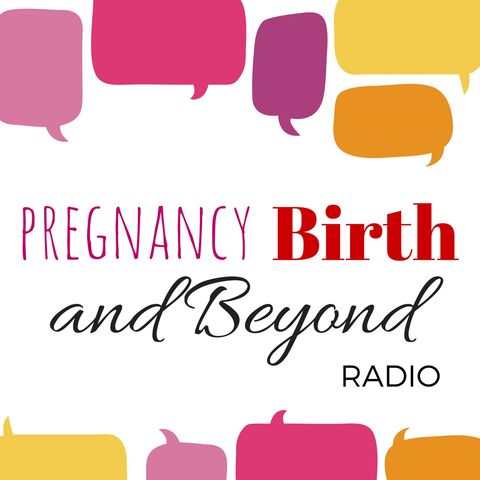Homebirth Obstetrician. Normal physiology of birth, politics and performance in maternity care with Dr Stuart Fischbein.

Descarga y escucha en cualquier lugar
Descarga tus episodios favoritos y disfrútalos, ¡dondequiera que estés! Regístrate o inicia sesión ahora para acceder a la escucha sin conexión.
Descripción
Obstetricians and Normal Childbirth. Normalising a deviation from normal, in any field, directs the baseline off track, misleads us as to what normal is and sets us on a course...
mostra másNormalising a deviation from normal, in any field, directs the baseline off track, misleads us as to what normal is and sets us on a course that becomes very difficult to correct the further down the track we go. When we normalise trauma, we no longer see it. When we normalise bad behaviour, it becomes less apparent and when we normalise a deviation from normal physiology it confuses everyone involved.
So what happens when we normalise deviating from normal physiology? When practices such as routine episiotomy (or when the vulva leading to the vaginal passageway is cut open because of a belief that that the tissues cannot or will not expand by themselves), routine induction of labour (thats when a person giving birth, overwhelmingly women, are told that their bodies will be better off being forced to go into labour rather than initiating the process of physiological labour itself), when in Australia one third of babies are born through major abdominal surgery and in some hospitals in Brazil there is an 85% cesarean section rate? What happens when a deviation from the normal physiological process of childbirth - that’s when a complex living organism separates itself from another complex living organism which has been growing inside it for ten months, what happens when this occurs?
Well, we don’t know the full extent of the impacts of these deviations individually or as a whole, short term and long term. But what we do know is that much unnecessary suffering occurs along the way, for everyone involved. Even, for those that are not aware of it.
In my interview with Dr Fischbein he discusses his incredible journey into becoming LA’s ONLY homebirth Obstetrician and how in a country that is leading in mechanical, managed and assisted childbirth, he practices good old fashioned sticking to the blueprint.
If you have any questions about this interview or our work at PBB Media, shoot us a line at hello@pbbmedia.org.
Some fun facts:
> In the Netherland over 15% of babies are born at home.
> In Australia 98% of women labour and birth in the hospital, 1.5% in a birth centre or on the side of the road and 0.5% at home.
> In Brazil, some hospitals have an 85% Cesarean Section rate.
> If you live in America or the UK and you are a black woman you are five times more likely to die during or not long after childbirth.
> The US has a 31% C section rate, Australia has 34% rate (that's 1 in3!). New Zealand babies are 1 in 4 with a 25.9% rate.
> 1 in 3 women in the Australia and the UK will have their labour induced.
> Induction of labour for selected women giving birth for the first time in Australia in 2017 - 43.1%
> 78% of Australian mothers who gave birth in 2016 had pain relief. That’s almost 4 out of 5 women. 36% of these were epidurals.
> The C section rate in Finland, Iceland and Norway stay steady at around 15% (with increasing age of pregnant mothers, diabetes and other diseases).
“You would never do to another mammal what you do to a human female.. no other mammal would labour like that, they would get up and run away”.
Find Dr Stu here: www.birthinginstincts.com
Links
WHO Statement on Cesarean Section rates: https://apps.who.int/iris/bitstream/handle/10665/161442/WHO_RHR_15.02_eng.pdf;jsessionid=FE71548F72C15166C4C9D770D1F41C11?sequence=1
C Section Rates around the world (article, Belly Belly): https://www.bellybelly.com.au/birth/highest-c-section-rates-by-country/
AIHW (Australian statistics on healthcare) Core Maternity Indicators: https://www.aihw.gov.au/reports/mothers-babies/ncmi-data-visualisations/contents/summary
Induction of Labour - Dr Rachel Reed (book, further links to articles and statistics): https://midwifethinking.com/2018/10/05/why-induction-matters-book-release/
Produced, edited and presented by Annalee Atia
The Pregnancy, Birth and Beyond show is part of a wider nonprofit community media and journalism project, PBB Media.
All rights reserved.
www.pbbmedia.org
Pregnancy, Birth and Beyond comes to you from Bundjalung Country at Cavanbah or Byron Bay and we acknowledge with respect and reverence the Arakwal people of the Bunjulung nation, neighbouring clans and people for caring for this country since time immemorial.
Información
| Autor | PBB Media Incorporated |
| Organización | Pregnancy, Birth and Beyond |
| Página web | - |
| Etiquetas |
Copyright 2024 - Spreaker Inc. an iHeartMedia Company
